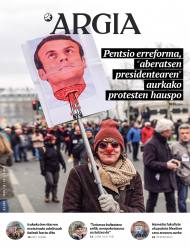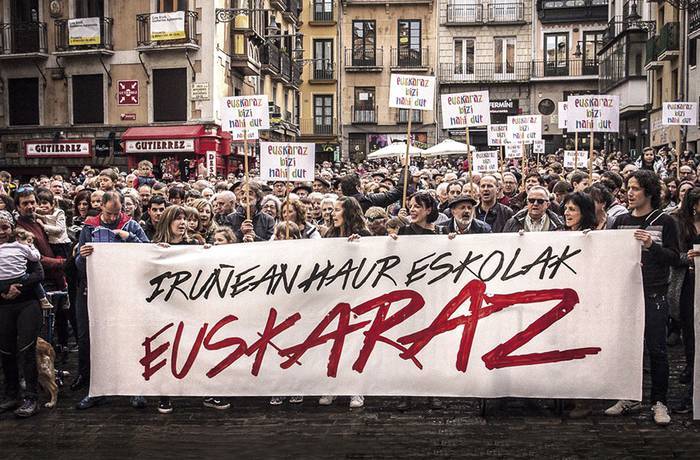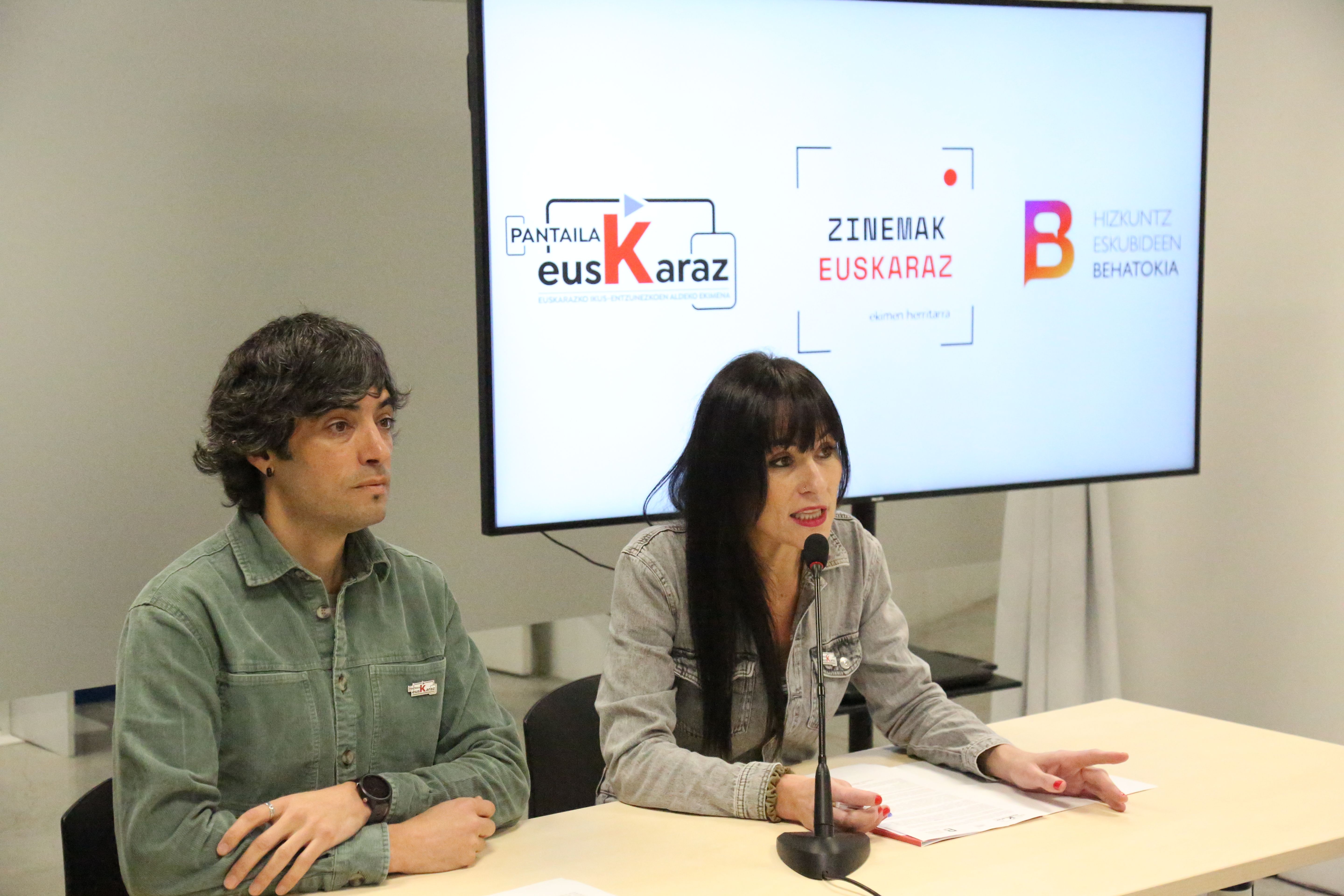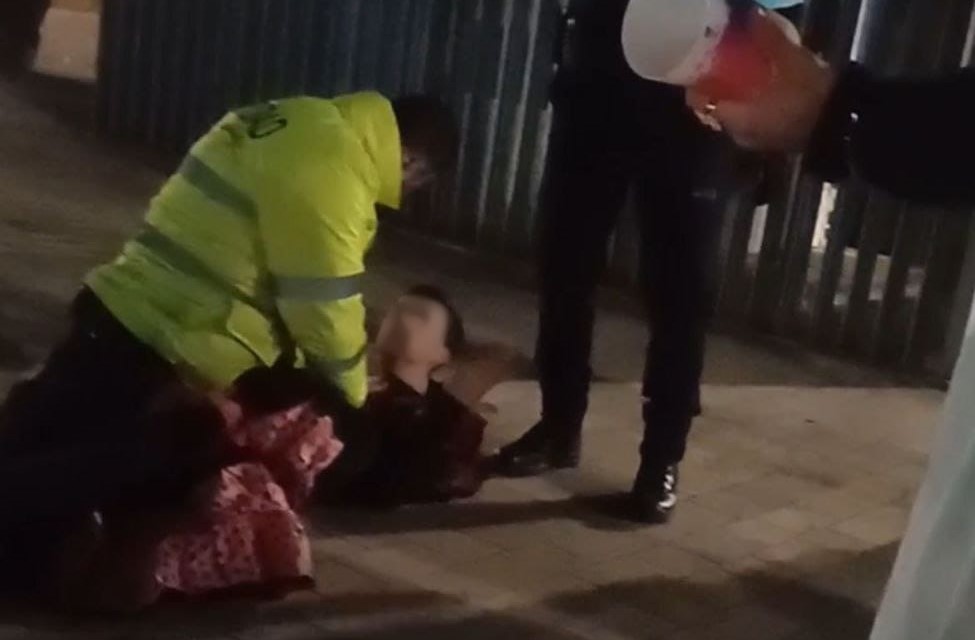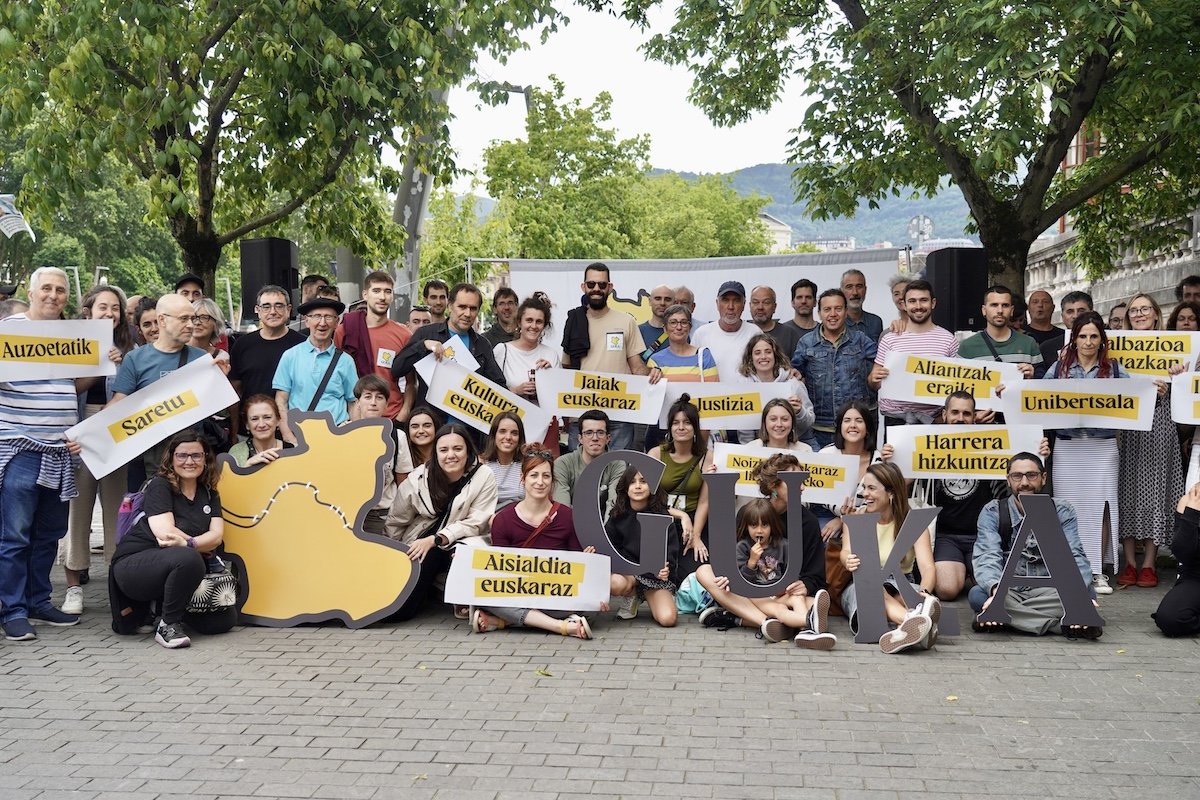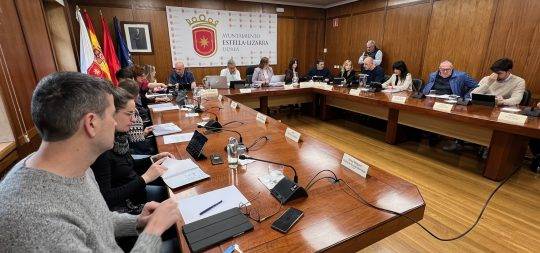Recognition of a restaurant that wants to live in Basque
- Bordatxo is a Basque restaurant. Euskaldunberris are the owners and Euskera stands out in the letter and in the treatment with the client. In Bilbao, and in the district of Deusto, there are not going to be many hospitality companies that play that way. Thus, the Bai Euskarari association has recognized and rewarded the work carried out during the last two decades in the restaurant Bordatxo de Tolosa.
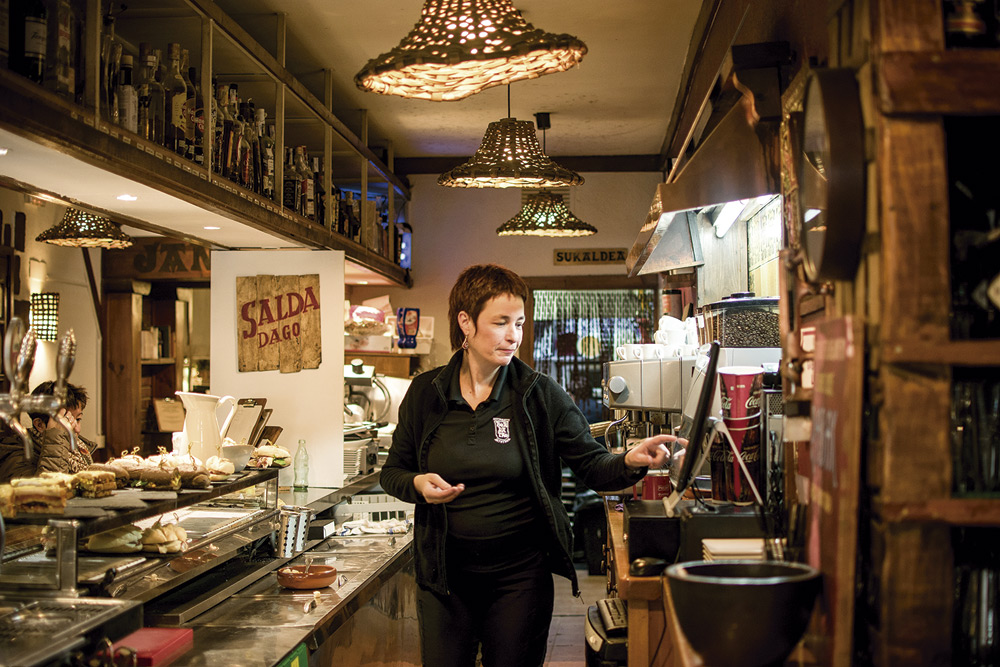
The Biscayan capital has become an important part of the international showcase and tourists are moving indefinitely. However, a large number of associations, groups of friends and businesses, whether they are employees or free of charge, are working on the normalization of the Basque country. Recognition tends to be a fundamental boost and boom for them, and so have the owners of the bar Bordatxo, Estitxu Lezea and Gorka Ganboa. Although they consider that the prize "will not be a direct financial contribution", they have pointed out that this is another reason for further work.
“It was a great surprise to us first, but from another point of view, we could say that we have not had much competition, because we are not in the city so many Basque shops. In addition to the Kafe Antzokia and the village bars, how much are we?” says Ganboa. The importance of the prize, however, lies in the socio-linguistic situation of the city of Bilbao. In other words, the prize would not make the same sense if the bar were in Gernika.
Proud to be the “AEK-KUMEAK” of the first generation. In the case of Lezea, she finished her compulsory studies and started studying Basque as a teenager, since until then she had only studied in Spanish. That is why he chose Euskaldunization, as he considered it essential to know Euskera to live in the Basque Country. Ganboa, on the other hand, entered the Basque country pushed by the family. The grandparents knew Euskera, but the parents did not learn it and started learning Euskera when he was about 9 years old to end this court: “I got into the Euskaltegi, but then I decided to Euskaldunizit; it was a logical conclusion.” Since then they have lived in Euskera here and there, in the trade, at home and on the street.
Bordatxo is the place that most Basques know in the Bilbao area. The restaurant has a personality, wants to enhance the concrete values. They have also immersed themselves in the neighborhood making various contributions, collaborating in the festivities with the neighborhood association and participating in the activities. In addition, from the very beginning, Euskera has had a great presence in the business, but beyond the restaurant, other areas of the business have tried to be in Euskera. Sometimes it has taken a lot of them, for example, to contact suppliers. “I understand that if I make a request to a Galician supplier, I send the receipt in Spanish or in Galician, so, more than to those who work in the Spanish State, we have to ask the locals to treat us in Basque,” they say. They are asked to send them labeled products and receipts in Basque, and if they do not, as in the case of coffee or sugar, the owners have been in charge of translating them.
“We know that in all these years we have won the referentiality and receiving this prize is a joy, but even more satisfying is listening to speak in Basque eight out of ten tables that are being served”, says Lezea. Despite serving in Basque, it cannot ignore reality. Moreover, Lezea explained that, although the clients speak with each other in Spanish, they try to order cafes in Basque: “They know that this is Bordatxo, which is spoken here in Euskera, but without feeling strange, they ask for it in Euskera and it is to be thankful.” It's near Deusto University and it goes to the students. Sometimes, students come to the teachers with the intention of practicing Basque.

New tourists
Turistification has spread throughout the year in the cities and towns of Euskal Herria. If Bilbao is not the most visited, it will be one of the most visited and, therefore, many shops have addressed the wishes of tourists. It's not a new account. In this sense, the identity has been compared and the internationalization of Bilbao has come: “If you close your eyes, you don’t know where you are: you can be in Bilbao, Madrid or London.” Lezea says that the identity of cities is being lost, especially in the world of bars and restaurants. It says that it is not enough to put Basque, if the products are then offered and these products have nothing of a place: “There are more and more franchises in the Old Party and all of them offer you the same food here, there and at the other end of the world, and so the same supplier works everywhere.”
In recent years they have had several anecdotes with the tourists: they have played with some on the pediment next to the restaurant, playing with spikes. However, according to Lezea, all of them have been surprised or taken photos to the restaurant, due to the aesthetics of the place: “It’s normal, they’ve spent three days in Bilbao, but they haven’t known Euskera or Euskal Herria.” They say they also see the letter in Basque as if they had never seen it. In fact, there are hardly any bars or restaurants that put the Basque in the front line: “Before there will be Spanish, English and French, not the Basque who makes us Euskaldunes.”
Euskarazko eskaintza handitzeko akordioa erdietsi dute EH Bilduk, PSNk, Geroa Baik eta Zurekin Nafarroak
Asteburu honetan hasiko da Gaztetxeak Bertsotan egitasmo berria, Itsasun, eta zazpi kanporaketa izango ditu Euskal Herriko ondorengo hauetan: Hernanin, Mutrikun, Altsasun, Bilboko 7katun eta Gasteizen. Iragartzeko dago oraindik finala. Sariketa berezia izango da: 24 gaztez... [+]
“Bi pertsona mota daude munduan: euskaldunak, batetik, eta euskaldunak izan nahiko luketenak, bestetik”. Gaztea zela, Mary Kim Laragan-Urangak maiz entzuten omen zuen horrelako zerbait, Idahon (AEBak), hain zuzen. Ameriketan jaio, hazi, hezi eta bizi izandakoak 70... [+]
Pantailak Euskarazek eta Hizkuntz Eskubideen Behatokiak aurkeztu dituzte datu "kezkagarriak". Euskaraz eskaini diren estreinaldi kopurua ez dela %1,6ra iritsi ondorioztatu dute. Erakunde publikoei eskatu diete "herritar guztien hizkuntza eskubideak" zinemetan ere... [+]
Administrazioko hainbat gai, LGTBI+ kolektiboko kideen beharrizanak, segurtasun subjektiboa, klima aldaketa, gentrifikazioa, ikus-entzunezkoak erabiltzeko modu berriak, audientzia-datuak jasotzeko moduak, dislexia, ikuspegi pedagogiko aktibo eta irisgarriak, literatur... [+]
Auzitan jar ez daitekeen baieztapen orokor eta eztabaidaezinaren gisan saldu digute hizkuntzak jakitea printzipioz ona dela, baina baditu bere "ñabardurak", edo esanahi ezkutuagokoak. Hemengo ustezko elebitasun kontzeptuaren azpian dagoen baina kamuflatzen den... [+]
Euskal Herrian Euskarazen arabera, Tolosako tren geltokiko segurtasun agente batek eraso egin zion militante bati, agenteari euskaraz hitz egiteko eskatu ziolako. Tolosako alkateak "kezka" adierazi du eta azalpenak eskatuko dituela jakinarazi.
Otsailaren 28an Hendaian eman dio hasiera kanpainari Herri Urratsek. Euskararen transmisioa bermatzen duen Seaska babestea da helburua.
EH Bilduk sustatuta, Hondarribiako udalak euskara sustatzeko diru-laguntzetan aldaketak egin eta laguntza-lerro berri bat sortu du. Horri esker, erabat doakoak izango dira euskalduntze ikastaroak, besteak beste.
Gukak “Bilbo erdalduntzen duen makina” ikusaraziko du kanpainaren bidez. 24 orduz martxan dagoen makina salatuko dute, eta berori “elikatu eta olioztatzen dutenek” ardurak hartzea eskatuko dute. Euskararen aldeko mekanismoak aktibatzea aldarrikatuko dute.
Plazara, AEK, Uda Leku, Dindaia eta Ebete antolakundeak Baionan elkartu dira Famili'on egonaldi ibiltariaren lehen edizioa aurkezteko. Hizkuntza mailaren arabera eskaintza bat edo beste egongo da eta haur zein gurasoentzat izango da udaberrian.
Hamahiru ZirHika kide batu dira hitanoaren erabilera aldarrikatzeko eta antolakundearen ekintzen berri emateko. Azalpenak Badihardugu elkarteko Idoia Etxeberria eta Galtzaundiko Uxoa Elustondok egin dituzte. Horiei, Andoni Egaña eta Amaia Agirre bertsolariak eta... [+]
Administrazio Epaitegiak arrazoia eman dio EH Bilduk Lizarrako plantilla organikoaren hizkutnz profilen aurka jarritako helegiteari.









